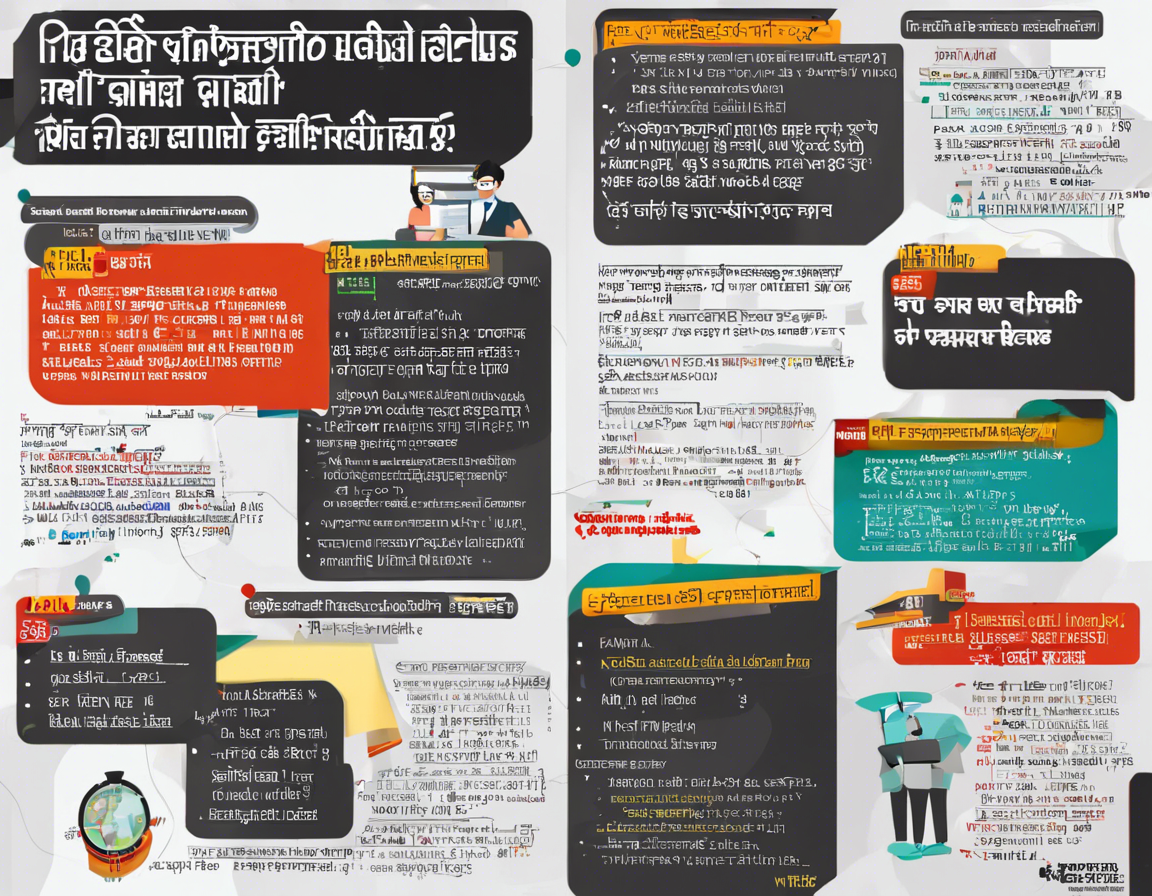The Joint Entrance Examination (JEE) Advanced is a prestigious engineering entrance exam in India conducted by the Indian Institutes of Technology (IITs) for admission to various undergraduate programs. As the exam pattern and syllabus undergo changes periodically, staying updated with the latest information is crucial for aspirants. Here is a comprehensive overview of the latest updates on JEE Advanced:
Changes in Exam Pattern:
Recent updates in the exam pattern have been aimed at enhancing the overall assessment of candidates. Some key changes include:
– Number of Attempts: The number of attempts for JEE Advanced has been limited to a maximum of two in consecutive years from 2021 onwards.
– Mode of Examination: The exam is conducted in online mode (computer-based test) for both Paper 1 and Paper 2.
Eligibility Criteria:
It is essential for candidates to meet the eligibility criteria laid down by the authorities to appear for JEE Advanced. Some recent updates in this regard include:
– Relaxation for the 75% criterion: Due to the COVID-19 pandemic, the 75% aggregate marks in the Class 12 board exams have been relaxed for the academic year 2021-22.
– Top 2.5 lakh in JEE Main: Only the top 2.5 lakh candidates in JEE Main are eligible to appear for JEE Advanced, subject to fulfilling other criteria.
Syllabus Changes:
Keeping in view the evolving educational landscape, the syllabus for JEE Advanced is periodically reviewed and revised. Some recent updates include:
– Reduced Syllabus: In 2020, considering the challenges faced by students due to the pandemic, the syllabus was reduced to focus on essential topics only.
– Inclusion of New Topics: With advancements in various fields, new topics or chapters may be included in the syllabus to keep it relevant and up-to-date.
Important Dates:
Staying informed about the important dates pertaining to JEE Advanced is crucial for aspirants to plan their preparation effectively. Some key dates include:
– Registration Process: The registration process usually commences in the month of September.
– Exam Date: JEE Advanced is typically conducted in the month of May or June.
Preparation Tips:
To excel in JEE Advanced, it is essential for candidates to have a strategic preparation plan. Some preparation tips that can help aspirants enhance their performance include:
– Consistent Practice: Regular practice is key to mastering the concepts and improving problem-solving skills.
– Mock Tests: Taking mock tests can help in understanding the exam pattern, time management, and identifying weak areas for improvement.
– Revision: Regular revision of concepts and formulas is crucial to ensure retention and clarity.
Frequently Asked Questions (FAQs):
Q1: How many times can I attempt JEE Advanced?
A1: You can attempt JEE Advanced a maximum of two times in consecutive years.
Q2: Are there any changes in the exam pattern of JEE Advanced?
A2: Yes, the exam is now conducted in online mode for both Paper 1 and Paper 2.
Q3: Can I appear for JEE Advanced without clearing JEE Main?
A3: No, only candidates who qualify in JEE Main are eligible to appear for JEE Advanced.
Q4: Is there any relaxation in the eligibility criteria for the current academic year?
A4: Yes, the 75% aggregate marks criterion in Class 12 board exams has been relaxed for the academic year 2021-22.
Q5: What is the typical time frame for the registration process of JEE Advanced?
A5: The registration process for JEE Advanced usually commences in the month of September.
Q6: How can I effectively prepare for JEE Advanced?
A6: Effective preparation tips include consistent practice, taking mock tests, and regular revision of concepts.
Q7: When is the JEE Advanced exam usually conducted?
A7: JEE Advanced is typically conducted in the month of May or June.
Q8: How can I stay updated with the latest information on JEE Advanced?
A8: You can regularly check the official website of JEE Advanced or follow reputable educational portals for updates.
Q9: Is it necessary to study additional topics apart from the JEE Advanced syllabus?
A9: It is advisable to focus on the prescribed syllabus; however, staying updated with advancements in related fields can be beneficial.
Q10: Are there any specific strategies to manage time effectively during the exam?
A10: Time management strategies such as allocating specific time to each section and prioritizing questions can help in maximizing your score.
Staying abreast of the latest updates, changes in the exam pattern, eligibility criteria, syllabus modifications, and important dates is essential for aspirants preparing for JEE Advanced. By incorporating effective preparation strategies and staying focused, candidates can enhance their chances of success in this highly competitive examination.



